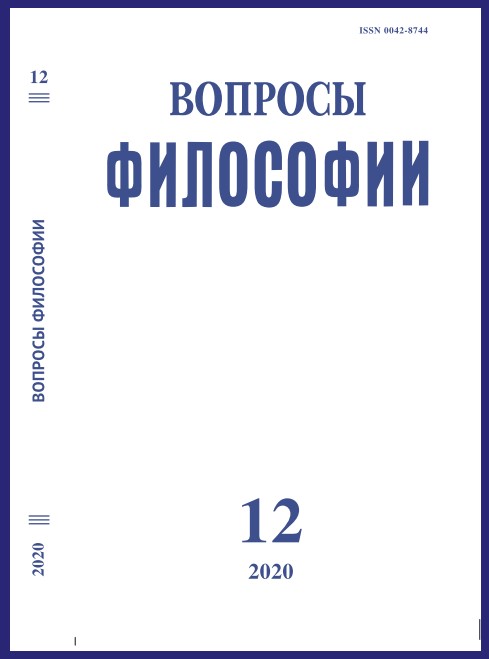Thomas Kuhn’s Theory of Scientific Revolutions in the Social Context of Cold War
DOI:
https://doi.org/10.21146/0042-8744-2020-12-153-156Keywords:
Thomas Kuhn, theory of scientific revolutions, incommensurability, cold war, scientific revolutions, scientific ideals and values, social studies of scienceAbstract
The concepts of “scientific paradigm” and “scientific revolution” have received many interpretations in philosophical tradition. They are taken as a starting point in studies of scientific theories change. However, the uncertainty of notions and standards for demarcation between normal and revolutionary sciences influence the proliferation of philosophical ideas, though it does not contribute to the better understanding of “Structure”. The truth is that scientific revolutions do not possess the strict structure. They start from theoretical or empirical anomalies and end as a social ceremony – by accepting the new basic theories and research strategies within a scientific community. Kuhn intentionally uses the term “revolution”, meaning a radical social activity for rebuilding the existing order of things. Moreover, paradigms reproduce the features of competing social systems and political camps at the cold war period. Analogy between the change of scientific paradigms and social systems is not absolutely strict. While it contributes to understanding of the nature of incommensurability and “gestalt switch” which accompany scientific development. What was more important for Kuhn – the image of revolutionary or normal science? The paradigm change appears as a natural order of things. Each type of science is not more normal than another one. But the revolutionary science is more creative and confesses the principle of “creative destruction”. Regimes of normal science might be described in terms and images of virtue epistemology. Only if Thomas Kuhn does not resist to these normative prescriptions of the philosophers of science.

